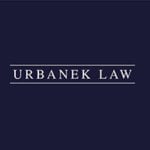-
Overview
The Hungarian real estate regime is based on the concept of general protection of real estate rights provided by the Fundamental Law of Hungary, stating that every person has the right to property.
The real estate legislation in Hungary is primarily based on the Civil Code (Act V of 2013 on the Civil Code) being the main source of Hungarian real estate law. There are other significant legislations relating to real properties e.g. regulations regarding the land registry system, construction, agricultural land, leases of residential properties and condominiums. In the past few decades, the Hungarian legal regime has been amended and consolidated several times in an attempt to comply with the needs of modern business practices.
One of the most important features of the Hungarian real estate regime that the real properties are registered in the centrally organised land registry system of Hungary, providing publicly available and authentic information of the real properties located in Hungary.
-
What is the main legislation relating to real estate ownership?
In Hungary Act V of 2013 on the Civil Code sets out the most fundamental rules of property law, which shall be applicable in relation to all of the types of real property ownership.
The other significant legislation regulates to the registration of real properties, including the relevant rights and facts relating to the real properties, this registration process governed by the Act C of 2021 on Land Registration (“New Land Registry Act”) and Decree of the Government 179/2023. (V.15.) on Implementation of the Land Registry Act (“New Land Registry Government Decree”), which legislation is effective as of 15 January 2025 (with respect to the main aspects of the change please refer to Q3 below).
There are specific statutes relating to the specific types of real properties, such as agricultural lands (e.g. Act CXXII of 2013 on Transactions in Agricultural and Forestry Land, Act CXXIX of 2007 on Protection of Agricultural Land), residential real properties (Act LXXVIII of 1993 on Lease and Alienation of Apartments and Premises).
-
Have any significant new laws which materially impact real estate investors and lenders come into force in the past year or are there any major anticipated new laws which are expected to materially impact them in the near future?
A significant legislation change is taking place in 2025 that will have material impact on the Hungarian real estate registration regime. Act C of 2021 (“New Land Registry Act”) and the relating implementing decree have entered into force on 15 January 2025.
The New Land Registry Act focuses on the following: (i) electronic land registry system by digitalizing and upgrading the registration and administration process (easier electronic access to registered data, alerts in case of administrational steps are due); (ii) updating and verification of data from other publicly authentic sources (e.g. the database for addresses); mitigating the current paper-based bureaucratic regime, providing full scale of administration electronically (enabling quick automatized decisions and registrations) and (iii) overall “codex –type” registration meaning that the New Land Registry Act covers all the rights, facts and data that can be registered instead of having to review several specialised acts.
Notwithstanding the New Land Registry Act coming into effect, the implementation of the electric land registry system was only completed in September 2025 (the so called TAKARNET system was replaced by E-ING) and the use of the electronical administration (with the gradual elimination of the current paper-based bureaucratic regime) is yet to come. Currently, there is no specific date on when electronical administration may be used by lawyers, anticipations range from December 2025 to the year 2026.
The New Land Registry Act will require additional trainings and increased liability insurance cover for lawyers to be eligible to assist clients in the new real estate registration system.
In relation to construction, under Act C of 2023 on Hungarian Architecture (“New Architecture Act”) that has become effect on 1 October 2024, it has become mandatory for architects and construction companies to possess liability insurance as of 15 January 2025. The amount of such insurance is regulated in detail by law. In lack of proper insurance, the construction site cannot be handed over to the construction company, and the construction e-log cannot be opened. A so called “green surface certificate” was also introduced that needs to be prepared as a precondition for obtaining occupancy permit with respect to certain buildings, e.g. those subject to a building permit and exceeding 5,000 sqm, applicable for construction permits the request for which is filed after 1 April 2025. The New Architecture Act and related legislation introduced several other smaller modifications that have become effective in the course of 2025.
A moratorium was imposed between 1 January 2025 to 31 December 2026 on private or short term accommodation, according to which no such accommodation (e.g. Airbnb) can be newly registered in Budapest during this period (previous accommodations may still keep their permits and continue to operate).
Preferential VAT of 5% was extended until 31 December 2026 (please see Section 17 below).
On 1 July 2025, Act XLVIII of 2025 on the protection of local self-identity came into effect. According to this law, local municipalities may impose restrictions on the purchase of real property located within their territory. Such restrictions may be (i) establishing pre-emption rights in case of a sale and purchase for the benefit of the municipality, its’ majority owned business entity, or certain local inhabitants; (ii) prohibition or restriction of establishing residence, or (iii) requesting residential contribution from persons wishing to establish a residence. As to date, more than a hundred municipalities have made use of this possibility, among them one district municipality in Budapest.
-
How is ownership of real estate proved and are ownership records available for public inspection?
All real properties located in Hungary are registered in the centrally organized land registry system, which is supervised by the minister heading the Prime Minister’s Office. The land registry system is composed of district land registries, which separately maintain local land registers for each village, town, and for Budapest districts.
All real properties are given a so-called “topographical lot number”, by which they are registered in the land registry system. The land registry is for registering, maintaining and updating the physical and legal data of all Hungarian real properties, including their basic physical characteristics, their cadastral maps, the rights and obligations as well as the relevant legal facts relating to the properties.
Land registry has its own principles, in relation to the proof of the ownership of real properties the principles have major importance are the following: (i) Public Access; (ii) Public Credibility and (iii) Registration.
1. Public Access
Land registry is open to the public thus it can be reached by anyone and this principle also guarantees the transparency of the land registry system. Based on this principle, the main data kept by the land registry on the so called “property sheets” or “land registry excerpts” for all real properties, is accessible for anyone on a paper-based or digital format. Hungarian-language property sheets and maps can be obtained electronically via the land registry’s internet page, however, a subscription agreement must be in place for the use of such electronic database services. In addition, every Hungarian individual with customer site (in Hungarian: “ügyfélkapu”) access may obtain two property sheets per year for free. The property sheets comprises of three sections as follows: (i) basic physical data of the real property, such as address, area, qualification, classification of use; (ii) data on (past and present) owners, including the date and legal title of acquiring ownership and (iii) data of (past and present) encumbrances registered onto the real property. In addition, the cadastral map of the real properties can also be requested in a paper or digital form.
2. Public Credibility
Land registry authentically proves the accuracy of the registered information / rights / facts and as a result, it protects the rights of a good faith party, obtaining rights over a real property based on the information registered in the land registry. Under this principle all rights and facts registered in the land registry shall be deemed to validly exist, unless proven to the contrary (i.e. the registration is definitive proof, but it is possible to overrule the rights registered in the land registry). In case of acquisition of ownership outside the land registry (e.g. by way of succession, marital common property, building on extraneous land, etc.) the ownership title of those who acquired ownership on a “quid pro quo” basis and in good faith are protected against the ownership claims of those who acquired ownership outside the land registry. If an underlying transaction (e.g. sale and purchase agreement) is deemed invalid by the court, the ownership title based on the invalid registration is deleted from the land registry and the original ownership title is reinstated.
3. Registration
The creation, amendment and termination of rights and entitlements defined by law (for example transfer of ownership, asset management right, land use right, beneficial ownership and the right of use, easement right and mortgage based on contract) shall be considered effective when recorded on the property sheet in the land registry. Rights may be registered in the real estate register if their registration is permitted by the relevant legislation.
-
Are there any restrictions on who can own real estate, including ownership by any foreign entities?
1. Restriction of ownership of foreign entities and individuals
In general, the following parties may acquire real property without restrictions:
- individuals acquiring ownership by way of succession, regardless of citizenship;
- citizens of the EU / EEA, legal entities, organisations without legal personality registered in the EU / EEA;
- individuals with dual citizenship (one of them being Hungarian citizenship), and citizens of Switzerland;
- Hungarian branch offices of foreign enterprises registered outside the EU / EEA in case there is reciprocity between Hungary and such foreign country.
Acquisition of real property by other parties is subject to the approval of the territorially competent government bureau. The approval is granted if the acquisition of the real property does not constitute harm to local government or other public interests, or in case the foreign person wishes to live permanently and to pursue economic activity in Hungary, for which economic activity the acquisition of real property is required, and the acquisition of real property does not constitute an injury to public interests. Even if these conditions are met, the approval may be refused if the state of which the foreign person is a national does not provide equal treatment to Hungarian nationals under an international convention or reciprocity, except if the purpose of acquisition is to cease common ownership, or the foreign person has verifiably been residing and living in Hungary for a period of no less than five years, out of which the foreign person was employed for at least three years.
The above approval procedure does not apply to Hungarian companies established by foreign investors. Foreign persons may also opt for leasing real estate, which is not subject to the approval procedure.
2. Restriction of ownership of agricultural land
As a general rule only private individuals with Hungarian or other EU citizenship may acquire real properties qualifying as agricultural land. Furthermore, private individuals who do not qualify as farmers, may acquire agricultural land up to maximum 1 hectare. The acquisition limit of private individuals qualifying as farmers is 300 hectares. However, for public interest purposes some certain legal entities, i.e. listed church, mortgage loan company or municipal government can acquire agricultural lands in some cases. Notwithstanding the above, it is also accepted by court practice for a legal entity to enter into a preliminary sale and purchase agreement with the seller promising to sell and the buyer promising to buy a real property once it is exempted from agricultural cultivation.
Agricultural land may be reclassified to an “exempted area” (i.e. area exempted from agricultural cultivation), in an administrative procedure by providing adequate justification for the reclassification. During the procedure a one-time land protection fee is required to be paid, the amount of which depends on the area in question, as well as on the quality of the agricultural land to be reclassified. Following reclassification industrial or commercial activity can be performed on the real property and the restrictions on the transfer of ownership no longer apply, i.e. the ownership of such land can be transferred to a legal entity.
-
What types of proprietary interests in real estate can be created?
1. Rights that may be registered in the land registry
Currently (i.e. based on the New Land Registry Government Decree) the following rights may be registered in the land registry (thereby creating in rem protection):
- ownership title (in respect of the entire real property or a specific ownership ratio, thereby creating joint ownership) and in the case of state-owned real estate, the person exercising the state’s ownership rights;
- asset management right in respect of state-owned or local municipality-owned real property (in respect of the entire real property, or a specific ratio, or specific area thereof);
- asset management right assigned to public task;
- operating right related to exclusive economic activity;
- permanent right of use for members of housing cooperatives (in respect of the entire apartment);
- land use right on the basis of agreement or court decision (in respect of the entire real property, or a specific area thereof);
- usufruct (in respect of the entire real property, or a specific ratio or specific area thereof) surviving spouse’s usufruct and widow’s rights;
- right of use (in respect of the entire real property, or specific area thereof);
- easement rights (in respect of the entire real property, or specific area thereof);
- public interest usage rights:
– right of use ensuring the placement of permanent surveying marks,
– right of use ensuring the placement of land qualification sample plots,
– right of use ensuring the placement of state boundary markers,
– right of conduit and right of use ensuring the placement and operation of specific gas industry structures,
– right of conduit,
– right of water conduction,
– right of water use,
– easement pursuant to the Mining Act (hereinafter referred to as: easement for mining purposes),
– right of use of railways,
– right of use of riverbeds,
– right of preliminary work,
-right of use ensuring the placement of an electricity industry structure,
– easement of conduit for the purpose of an electricity industry structure,
– easement for the purpose of an electricity industry structure,
– irrigation easement; - mortgage, independent lien, including converted independent liens (in respect of the entire real property or a specific ownership ratio);
- sub-lien;
- enforcement right (in respect of the entire real property or a specific ownership ratio);
- prohibition of alienation;
- prohibition of encumbrance;
- prohibition of alienation and encumbrance;
- other prohibition restricting the right of disposal;
- buyer’s right related to retention of title;
- lessee’s right related to financial leasing;
- right of first refusal and right of repurchase, option to buy (in respect of the entire real property or a specific ownership ratio, may be established for a definite period of time);
- right of support and life annuity (in respect of the entire real property or a specific ownership ratio), right of nursing;
- buyer’s right with respect to future buildings;
- right of use of joint ownership;
- building right;
- statutory right of use.
There are other rights and proprietary interests that may be created with respect to a real restate (such as the right to lease), but those cannot be registered in the land registry.
-
Facts that may be recorded in the land registry
Only the following property-related facts may be recorded in the real estate register:
- the beneficiary
a) is a minor,
b) has been placed under guardianship; - the following proceedings have been initiated against the beneficiary
a) liquidation proceedings,
b) voluntary liquidation; - the deletion of the branch office or commercial representation of a foreign-based company from the company register;
- the initiation of expropriation proceedings;
- the initiation of proceedings to settle the ownership of real estate affected by a national public road;
- the initiation of land formation proceedings;
- initiation of proceedings for the establishment of a mining easement;
- initiation of proceedings for the determination of the location of shared land ownership;
- initiation of proceedings for the correction of errors in surveying, mapping or area calculation;
- administrative lawsuit, prosecutor’s call, prosecutor’s action or supervisory procedure against a decision of the real estate authority;
- request for review or retrial against a court decision serving as the basis for or related to the registration;
- rejection of a real estate registration application;
- termination or suspension of real estate registration procedure;
- permanent environmental damage established by a final official or legally binding court decision;
- proven environmental burden (hereinafter: proven environmental burden) in accordance with the government decree on the environmental and nature conservation requirements of liquidation and final settlement procedures;
- prohibition of land formation;
- prohibition of construction;
- restriction of use;
- restriction of construction;
- restriction of mining rights;
- restriction of water use;
- construction obligation to
- demolition,
- partial or complete conversion of the building or part of the building,
- reconstruction,
- fencing of the site,
- cessation of unauthorized use of the building,
- cessation of the use of the building or part of the building that is unstable and poses a threat to life, health, or public safety,
- rectification of defects and deficiencies in the building or part of the building,
- make the building compliant with the architectural and technical documentation stipulated in the building authority’s proceedings,
- to remove construction waste, leftover building materials, and construction tools from the building’s surroundings that were generated during construction,
- to restore the environment and the surface of the terrain to their original or permitted condition,
- remedying any damage caused to the environment,
- fulfilling the obligation to maintain the building in good condition (inspection, renovation),
- restoring the building;
- urban planning obligations based on a municipal authority decision
a) building obligation
b)restoration obligation,
c) planting obligation,
d) shutdown obligation; - urban planning obligations based on a municipal authority contract;
- heritage protection authority obligation to
a) restore the condition prior to the intervention,
b) fulfil the obligation of sustainable use,
c) terminate inappropriate use,
d) cease the activity,
e) fulfil the obligation to preserve the condition of protected monuments,
f) fulfil the obligation to maintain protected monuments in good condition,
g) inspect, renovate, or convert buildings or parts of buildings; - closure of private roads to public traffic;
- initiation of court proceedings specified in Section 68(1) of the New Land Registry Act;
- initiating criminal proceedings;
- initiating administrative proceedings concerning real estate;
- setting an auction date;
- closure;
- seizure;
- closure for the implementation of financial and asset restrictions imposed by the European Union and the UN Security Council;
- securing the priority of mortgage rights, independent lien rights, and sub-mortgage rights in advance;
- waiving the right to dispose of mortgage rights, independent lien rights, and sub-mortgage rights with priority secured in advance;
- changing the priority of requests;
- pursuant to the Act on Condominiums
a) creation of the position of joint representative,
b) creation of the position of chair of the management committee,
c) submission of reports,
d) submission of organizational and operational rules; - preliminary establishment of a condominium;
- initiation of repeated probate proceedings as defined in Section 71 of the New Land Registry Act;
- contractual regulation of the exercise of land use rights;
- ownership rights pertaining to assets managed on the basis of fiduciary asset management;
- submission of a contract for the transfer of land ownership rights;
- debt settlement proceedings initiated against an eligible natural person;
- insolvency proceedings initiated against a debtor falling within the scope of Regulation (EU) 2015/848 of the European Parliament and of the Council of May 20, 2015, on insolvency proceedings;
- uncertainty regarding ownership status;
- division of land in progress pursuant to Act LXXI of 2020 on the liquidation of undivided joint ownership of land and the registration of data on the owners of real estate classified as land;
- assuming of environmental liabilities;
- existence of a safety zone;
- existence of a research protection zone;
- adjudication in full proceedings;
- initiation of proceedings to examine the possibility of re-registering a canceled usufructuary right;
- ongoing transfer of ownership;
- obligation to settle joint ownership;
- initiation of proceedings for conversion to condominium ownership due to lack of owner consent;
- initiation of proceedings for the settlement of ownership rights to real estate affected by a railway line of national importance;
- prohibition of changes.
-
Is ownership of real estate and the buildings on it separate?
As a general rule, ownership of a superstructure belongs to the owner of the underlying land (principle aedificium solo cedit). Nonetheless in certain cases it is allowed to differ from this rule, e.g. the developer may conclude an agreement with the land owner to acquire separate ownership right over the superstructure. In this agreement, it is recommended to regulate the land use right of the owner of the superstructure; or at the request of the real property owner, the superstructure and the land on which it stands may be entered in the real estate register as separate properties.
-
What are common ownership structures for ownership of commercial real estate?
Commercial real estate in Hungary is typically owned by Hungarian registered limited liability companies (in Hungarian: Kft.) and private or public companies limited by shares (in Hungarian: Zrt. and Nyrt.). These business forms are primarily chosen from a legal perspective (due to their liability being limited in general). The use of the entities to hold real estate assets like regulated real estate investment companies (in Hungarian: SZIT) and real estate investment funds are also common.
From a tax perspective, there is no difference between the limited liability companies and private or public companies limited by shares. However, real estate investment trusts and real estate funds benefit from corporate income tax exemption and lower real estate transfer tax rate.
-
What is the usual legal due diligence process that is undertaken when acquiring commercial real estate?
For sales of commercial real estate, the due diligence process contains the inspection of the publicly available data (by reviewing the land registry sheets and land registry maps, which can be obtained online from the land registry system for nominal costs) and the additional documents that are available only to the seller (such as the lease agreements, use agreements).
Generally the buyer will perform a legal due diligence, however it is not uncommon (especially if real estate portfolios are considered to be sold) that the seller performs a preliminary vendor due diligence to eliminate those items which can hinder the acquisition process (e.g. correction of not up-to-date registration details etc.). The due diligence performed by the seller is only a preparatory step, and does not substitute the buyer’s legal due diligence process.
There is no standard form of due diligence or reporting, but the buyer’s legal advisors usually provide the seller with an information request list on the information/documents that need to be reviewed.
The areas of review in case of an asset deal usually cover the following main areas:
- title (including encumbrances and easements),
- permits (that the respective buildings have all the necessary building, occupancy and other permits),
- zoning, leasing and operating agreements,
- environmental, and
- real estate related litigation.
If the transaction is performed through a share deal, the areas to be reviewed are more extensive (including but not limited to corporate, employment, financing and tax matters).
The necessary time for the closing of the due diligence process depends on the volume of the documentation and the structuring and compilation of the data room.
-
What legal issues (if any) are outside the scope of the usual legal due diligence process on an acquisition of real estate?
The physical features of the real estate (such as the actual size and location of the real estate, the actual status of the road connection, environmental, safety and health circumstances) are not covered by usual legal due diligence, but rather the technical and/or environmental due diligence, usually performed parallel to the legal due diligence.
There could be rights that are not registered with the land registry (e.g. adverse possession, the spouse of the private individual owners or the pending inheritance process), however information on these is usually requested in course of the due diligence and warranties are also given by the seller, that the provided information is true and complete.
-
What is the usual process for transfer of real estate, and when does liability pass to the buyer?
Transaction Steps Seller Buyer Comments Head of Terms (“HoT”) or Letter of intent (“LoI”) - Preparation of a teaser on the property
- Preparation and negotiation of HoT (or LoI)
- Preparation and negotiation of HoT (or LoI)
- Preliminary searches and site visits, if possible verifying the main data in the teaser
- HoT (or LoI) is not binding save for exclusivity and confidentiality clauses (or any other clauses the parties agreed to consider as binding)
- Upon signing the HoT, access to the data room (usually virtual data room) is granted
Preparation of the sale and purchase agreement and ancillary documents - Preparation and negotiation of draft sale and purchase agreement (if separate transfer deed is used, the transfer deed);
- Preparation of ancillary documents (escrow agreement, especially if signing-closing separates, transfer of service agreements)
- Carrying out legal due diligence;
- Carrying out technical, financial due diligence and land/technical surveys, site visits, if applicable,
- Negotiation of the sale and purchase agreement and ancillary documents
- No prescribed form of the sale and purchase agreements (except that it must be in writing);
- In case of asset deal, the property sale and purchase agreement or transfer deed shall be submitted to the land registry, therefore certain formal requirements (e.g. Hungarian language, lawyers’ countersignature) shall be met
Signing to Closing - Deposit of the registration consent into escrow upon signing of the sale and purchase agreement (if applicable)
- Satisfaction of any conditions to closing
- Agreement with existing lender on the release of securities (if applicable)
- Competition Authority’s approval (if applicable)
- Obtaining zero certificates from the tax authorities, certifying that there is no outstanding tax or public duty payments
- Payment of deposit to the seller or to an escrow account (if applicable)
- Arrangement on purchase price funding (including third party debt) (if applicable)
- Satisfaction of any conditions to closing
- A deposit of up to 10% of the purchase price is typically paid on signing, which will be forfeited if the buyer fails to complete sale. If it serves as an earnest money, the double shall be paid back by the seller if failure to close is attributable to the seller
Closing - Repayment of any existing debt and discharge of mortgage (if applicable)
- Releasing or instructing the escrow agent to release the registration consent to the buyer (if applicable)
- Execution of transfer deed
- Payment of purchase price
- Instruction of the escrow agent to release the deposit to the seller (if applicable)
- The proof of release of existing mortgages may need to be provided on or prior to Closing
Post-closing - Transfer of tenants’ security deposits to the buyer (if applicable)
- Co-operation on informing the tenants on the transfer of ownership
- Termination of remaining service agreements, not transferred to the buyer;
- Reconciliation with paid rents and service charges with the buyer
- Payment of transfer tax
- Registration of transfer of the ownership of the property at the competent land registry
- Reconciliation with the seller of the rents and service charges already paid by the tenants to the seller
- For transfer tax, please see answer to Q17
- Land registry fees are dependent on the number of properties affected (approximately EUR 27/property or EUR 50/property in case of mortgage)
-
Is it common for real estate transfers to be effected by way of share transfer as well as asset transfer?
Real estate is usually held by entities specially formed for this purpose as there could be advantages of transferring the interests in those entities, rather than the underlying real estate (as there could be pre-emption rights connected solely to the sale of real estate that can be avoided by a share deal; there could be operating agreements that shall not be transferred separately; or there could be loss carry forward in the property holding company that could be used up by the future owner).
However, applying a share or asset deal must be decided on a case by case basis, as there can also be risks linked to historical liabilities (for example tax risk). Please note that in general, the payment of property transfer tax cannot be avoided by the transfer of the property holding entity instead of the direct sale of the real estate.
-
On the sale of freehold interests in land does the benefit of any occupational leases and income derived from such lettings automatically transfer to the buyer?
No formalities are required beyond the registration of the ownership change, but the lessees need to be informed on the ownership change.
-
What common rights, interests and burdens can be created or attach over real estate and how are these protected?
A wide variety of rights, interest and burdens can be created or attached to real property. The main categories are:
- rights, interest and burdens existing by virtue of law (and usually, but not always registered with the land registry), such as rights/burdens relating to cultural heritage or archaeological protection;
- right, interests and burdens that can be registered in the land registry: easements (for example line easements, right to trespass), mortgages, option rights, restrictions to sell or encumber the property, litigation affecting the real property;
- right, interests and burdens that cannot be registered with the land registry but transfer together with the transfer of the real property, such as leases.
If a right, interest or burden can be registered with the land registry the registration is required in order to be protected, however, due to the fact that non-registered rights (such as leases) may exist, requesting full disclosure with respect to these matters is inevitable in the course of a due diligence process.
With respect to (i) rights that can be registered and (ii) the facts that can be recorded with the land registry please refer to the response provided to Q6 above.
-
Are split legal and beneficial ownership of real estate (i.e. trust structures) recognised?
The split of legal and beneficial ownership of real estate (i.e. trust structures) is not recognised under the laws of Hungary.
There are several types of acquisition of a real property outside the framework of the land registry, which are recognised by the laws of Hungary e.g.: succession, marital common property, building on extraneous land etc. In such cases, the ownership title is created by the underlying event (e.g. succession, construction) and not as a result of the registration into the land registry. The beneficiaries of such rights may however, claim that their ownership title be registered in the land registry. Acquisition under the legal title of sale and purchase may only be created by way of registration with the land registry.
The ownership title of those who acquired ownership on a “quid pro quo” basis and in good faith (trusting the authenticity of the land registry, the rights registered and facts recorded therein) enjoy in rem protection against the ownership claims of those who acquired ownership outside the land registry.
-
Is public disclosure of the ultimate beneficial owners of real estate required?
Hungarian law does not require the registration of ultimate beneficial owners of real estate with the land registry. Only the direct owners and the beneficiaries of registered rights and encumbrances can be identified from the land registry.
-
What are the main taxes associated with real estate ownership and transfer of real estate?
Transfer tax
The acquisition of real properties located in Hungary triggers transfer tax payment obligation. As a general rule, the buyer of the real property shall pay transfer tax on the acquisition of real property for consideration. The general tax rate is 4% up to HUF 1 billion (EUR approx. 2,577,320) of the market value of the real estate and 2% on the excess, however, the total payable transfer tax shall not exceed HUF 200 million (approx. EUR 515,464) per real property (i.e. per topographical plot number).
Transfer tax is also applicable to share transactions where the shares in a real estate holding company are acquired if the ownership ratio of the buyer reaches 75% of the company’s total shares. Shares of related parties and close relatives shall also be calculated for this threshold. The amount of transfer tax liability shall be calculated in respect of each real estate held by the company separately under the above rules. Real estate holding company is a company (i) in the balance sheet of which Hungarian real estate make up more than 75% of the value of total assets; or (ii) which owns more than 75% participation, directly or indirectly, in a company fulfilling the condition under (i).
With respect to acquisitions of real estate by real estate funds, credit institutions, real estate traders or REITs a discounted transfer tax rate (flat 2%) is accounted, however the HUF 200 million cap of transfer tax liability does not apply in these cases.
Furthermore, the acquisition of real estate that has been rezoned as incorporated land and the ownership ratio of a company holding real estate rezoned as incorporated land shall be subject to transfer tax. Transfer tax payment arises if the real estate was rezoned within ten years before the sale except for the real estate that the seller owned for more than 6 years before rezoning or the real estate that the seller inherited. The tax rate is 90% of the difference between the value of the real estate at the time of acquisition and the value at the time of the sale. Transfer tax liability burdens the transferor.
There are numerous exemptions from transfer tax available; for example, no transfer tax is payable if the transfer takes place between related parties, or by a preferred transformation, exchange of shares or transfer of business; in all cases subject to further conditions. Therefore, preliminary tax structuring is highly recommended in real property related acquisitions.
VAT
Under the Hungarian VAT Act the sale of real property is in general exempt from VAT. However, the seller can opt for taxation, where such sale will be subject to reverse charge, i.e. the buyer shall assess and pay the VAT to the tax authority, the general VAT rate is 27%.
New real property (i.e. which has not been occupied or less than 2 years have been passed since its occupancy or development) and building plot is excluded from the above exemption and the reverse charge regime, therefore their sale is subject to direct VAT which shall be charged by the seller to the buyer.
Subject to further conditions, a preferential 5% VAT rate shall be applied for the sale of new (i) residential units in a multi-unit residential building having a total net floor space not exceeding 150 square meters and (ii) single-unit residential units having a total net floor space not exceeding 300 square meters, provided that the related building permit has become final (or declaration to the construction authority was made) until the end of 2026 and the property is sold until the end of 2030.
Personal income tax
The regulation on personal income tax is applicable if a private individual sells real estate, in this case his/her income (the revenue less deductible costs, e.g. acquisition costs) is taxable at 15% personal income tax rate. The taxable income is gradually decreasing by each year from the acquisition, becoming tax exempt by the fifth year. The tax liability shall be established under different rules, if the private individual sells the real property in the scope of its business activities, depending on the form in which the private individual pursues its business activity.
Local real property taxes
Real property tax on buildings and building plots can be imposed by the local municipalities within the frame of act on local taxes. The tax is payable on a semi-annual basis by the person registered as owner on the first day of the tax year.
The maximum rates of local real property taxes are (i) in case of buildings, HUF 1,100 (approx. EUR 2.8) per sqm or 3.6% of the adjusted market value of the building and (ii) in case of building plots, HUF 200 (approx. 52 cents) per sqm or 3% of the adjusted market value of the building plot, however the above rates based on the sqm of the building or the building plot could be raised by the local municipalities in accordance with the inflation.
-
What are common terms of commercial leases and are there regulatory controls on the terms of leases?
Under the laws of Hungary, the principle of freedom of contract is generally applicable to commercial leases. The only mandatory requirement is the written form of the lease agreement. Hungarian language is not a requirement for such agreements, however, for practical reasons most commercial lease agreements are in English/German-Hungarian bilingual format. Based on Hungarian law, there is no registration obligation (for example: in the land registry) for the lease agreements.
Lease agreements are either concluded for a definite or an indefinite term, however commercial leases are typically concluded for a definite term. In case of definite term, the lease agreement can only be renewed unilaterally if this is explicitly agreed therein. Tenants may require such unilateral extension right, typically for 3-5 year terms. If the lease agreement is extended, the prevailing terms (at the time of the original term expiry) are usually applicable.
In the event that the tenant keeps using the leased property after the expiration of the definite lease term and the landlord does not object to such use, then the lease continues as an indefinite lease relationship by virtue of the laws of Hungary. As this provision is significantly disadvantages for the landlord, the application of this legal regulation is often excluded in definite-term commercial lease contracts.
Unless otherwise agreed, termination right of the parties in lease agreements with a definite term is significantly limited and the lease agreement can only be terminated for good reason. Generally the termination rights in the commercial leases are more favourable to the landlord and: in general, the tenant is only entitled to terminate the lease if the leased premises are unfit for proper use for a longer period of time (45-60 days) and the landlord fails to remedy the defect (30-60 days from the tenant’s notification). In comparison to this, the landlord’s termination rights are much broader and the termination causes are the following: the breach of a major obligation of the tenant (e.g. breaching obligations concerning payment, provision / supplementation of security, taking out the prescribed insurance, or damaging the leased property), however generally the landlord is obliged to provide an opportunity for the tenant to remedy the breach before terminating the lease. Based on recent court practice a reason or circumstances precluding the contractual use of the leased property is considered to be in the sphere of interest of the tenant if it arises or is attributable to the condition, circumstances, situation or conduct of the tenant or of persons appointed by the tenant.
Lease agreements with an indefinite term can be terminated by notifying the other party in advance, in accordance with the relevant notice period specified in the given lease agreement.
The rent can be determined as fixed rent or the combination of a base rent and a turnover rent. In case of an office lease the rent is usually determined as fixed rent, but in case of a retail lease the rent is usually determined as the combination of a base rent and a turnover rent. The rent is typically determined and calculated in EUR, while its payment might be made in EUR or in HUF, depending on the parties’ agreement. For the tenant it is favourable, if the rent is defined in EUR and is paid in EUR as this the tenant can avoid rent increases due to exchange rate changes. The rent is universally indexed annually either based on the yearly HICP euro zone index (MUICP) or the yearly HICP EU 27 index. Indexation by a fixed rate annually, or restrictions on the level of indexations, although not unseen in the market, are rare. A rent discount is often awarded to the tenant as a commercial incentive.
In excess of the rent, tenants are generally responsible for all costs (covering from 1-12 months, depending on the type of the leased premises and the length of the lease term) incurred in connection with the maintenance and operation of the leased property. Generally, these operating expenses are paid in HUF. This shall not be applicable, however, to proportionate costs of any vacant premises within the leased property or to any services which serve exclusively a limited number of tenants. Capital expenditure items are also excluded from the costs paid by the tenants. The costs of consumption resulting from the use of utilities in the leased property shall also be born by the tenants.
To secure the landlord’s claim arising from the lease agreement and the tenant’s behaviour, lease agreements generally require from the tenant to provide a security to the landlord, ranging from a 3 to 6 months’ amount of rent and operating expenses, depending on the real property’s function and the parties’ agreement. The security is generally provided in the form of cash deposit, bank guarantee or mother company / third party guarantee undertaking.
If the ownership of the real property is changed, it does not automatically terminate the valid and effective lease agreements. In such case the buyer automatically becomes the landlord of the lease under the same conditions as set forth in the lease agreement, and may not terminate such agreement, except if the tenant provided false information to the buyer in respect of the existence or the material terms of the lease.
Transfer of the lease agreement by the tenant or sub-letting the leased premises are typically subject to the landlord’s prior written consent. A common exception is transferring / sub-letting to a company belonging to the tenant’s company group, with a simultaneous notification to the landlord. Commercial leases show a variety of definitions of ‘company group’ and might include safeguards and controls for the landlord ensuring that within the company group, the agreement is transferred to a company which is well-funded. Standard condition is that the sublease agreement cannot contain more favourable terms than the lease agreement and the sublease agreement automatically terminates if the lease agreement is terminated for any reason.
-
What remedies are commonly available for landlords in the event of a tenant breach of a commercial lease?
The most common remedy is the termination of the lease agreement and claiming damages. It is standard that the lease agreement obliges the tenant to pay the rent and service charges for the remaining lease term, however, courts usually do not award this kind of compensation and limit it to a 6-12 months’ amount, a period during which the landlord can reasonably find another tenant.
The amount of damage (or part of it) payable by the tenant in case of a breach is usually drawn down by the landlord from the performance security provided to the landlord at the beginning of the lease term, as set out in Q18 above.
Under Hungarian law, landlords are entitled to a statutory lien over tenant’s assets located in the leased premises in order to cover unpaid rent and other costs.
In addition, if the tenant owes rent or other costs to the landlord, the landlord may request the issuing of a payment order form the notary public, and (i) if the tenant does not dispute the payment order within the statutory deadline, then the landlord may also enforce its claims, (ii) if the tenant disputes the payment order, then the landlord may continue the procedure before court.
The landlord may also initiate a liquidation procedure against the tenant under certain conditions, however, this is not a standard route, as it requires effort from the landlord and the settlement of claims is not ensured.
It is also common that landlords request a so-called eviction declaration from tenants issued in the form of a notarial deed, under which tenants may be forced to leave the leased premises without a court procedure if the lease agreement terminates for any reason.
-
How are use, planning and zoning restrictions on real estate regulated?
Hungarian jurisdiction regulates the use of real estate and planning, zoning restrictions at both statutory and lower legislative levels. The general sources of law regarding the use of real estate as well as their planning and zoning are the Act C of 2023 on Hungarian Architecture (“New Architecture Act”), Act LIII of 1995 on the Protection of the Environment and Government Decree 280/2024 (IX. 30.) on the Basic Regulation on Urban Planning and Building Requirements (in Hungarian: TÉKA) effective as of 1 January 2025 and Government Decree No. 281/2024. (IX.30.) on Procedures and Controls by Building Authorities (“New Code of Procedure”), all of which apply throughout the entire country. In addition to these generally applicable provisions, local municipalities are also required to adopt specific regulations, including, but not limited to their own structural plans, zoning maps and local building and townscape codes applicable to the area of the given municipality.
In Hungary, a wide-ranging package of amendments to the legislation on architecture was published on 30 September 2024 (with a phased entry into force, but mostly with effect from 1 October 2024), please see Q3 above.
The competent construction authority of a territory is generally responsible for controlling the development process through the issuance of building permits and occupancy permits, however, consent from several other authorities may also be required throughout the procedure. National or special agencies deal with projects that require special permitting, i.e. mining or special infrastructures. The competent construction authority may issue the following main types of permits:
- -In general, construction works may be commenced only based on a building permit, valid for a four-year period, however, not all construction activities are subject to obtaining a building permit. The validity of the building permit cannot be extended. During the validity period, if the construction activity has been started, as evidenced by the opening of the construction logbook, the building must be ready for granting of an occupancy permit or for the acknowledge of the commencement of use within 6 (six) years of the start of the construction activity;
- Upon the completion of the construction works, an occupancy permit is required for the actual use of the building. The occupancy permit is issued only in case the building is appropriate for use and was constructed in line with the provisions of the building permit, following the site visit of the building by the competent construction authority. The occupancy permit is valid for an indefinite period, but may be issued conditionally or partially to parts of the respective building;
- Other types of permits include, but are not limited to permit for function change and retroactive building permit. The rules of permitting are vastly simplified in case of the construction of residential buildings below 300 sqm;
- Buildings may be demolished only in possession of a demolition permit, valid for a 4 (four) years period. The validity of the demolition permit cannot be extended. If the demolition activity was started during the validity period of the demolition permit – as evidenced by the opening of the electronic construction logbook -, the demolition activity may be continued for 6 (six) years from the date of putting the electronic construction logbook standby;
As a general rule decisions of the competent construction authority may be appealed before the competent court.
In relation to town planning, from 2022 due to the change in the regulations, the competence of the National Architectural Design Council (in Hungarian: “Országos Építészeti Tervtanács”; “Design Council”) has substantially increased by stipulating that it must give its opinion / approval to the architectural plans and technical specifications in several cases e.g., (i) the State’s high-rise construction projects under the Act on the Implementation of State’s High-Rise Construction Projects; (ii) buildings with a total useable area exceeding 5,000 square metres; and (iii) newly constructed condominium residential buildings consisting at least six apartments on a plot with a total useable area of more than 1,500 square metres.
The approval of the Design Council is not required (i) in case of investments designated as strategic investments from Hungarian economy perspective if the government decree designating the investment as strategic investment specifically excludes the need for approval or (ii) for other architectural-technical plans is qualified as winner in a public procurement procedure.
-
Who can be liable for environmental contamination on real estate?
Unless proven otherwise, the persons or entities owning and/or possessing (using) a real estate following the occurrence of an environmental damage or hazard are jointly and severally liable for such environmental damages and environmental hazards.
The owner of the real property may be exempted from the joint and several liability by identifying the person actually using the real estate and proves beyond doubt, that he/she is not liable.
Notwithstanding the above, the parties are free to regulate their relative liability towards each other and liability for acts of third parties in a separate agreement. Such an agreement, however, creates rights and obligations only between the parties. When imposing a fine the environmental authority does not take the agreement of the parties into account, and such claim can only be enforced between the parties via initiating a civil law court procedure.
In order to avoid such difficulties of proof, appropriate warranties are usually set out in the property sale and purchase agreement, in which the seller usually declares, that, to the best of its knowledge, there are no toxic materials or environmentally hazardous substances, explosives or similar materials on and under the surface of the property. Purchasers of a real estate generally seek to shift liability for pollution, environmental contamination that occurred prior to the sale and purchase of the property to the seller, while the sellers’ interest is to limit its’ liability to best knowledge.
-
Are buildings legally required to have their energy performance assessed and in what (if any) situations do minimum energy performance levels need to be met?
Under Hungarian law the energy performance of buildings has to be assessed (i) in the case of the transfer of ownership for consideration of an already existing building or a stand-alone unit; (ii) in the case of the leasing of an already existing building or a stand-alone unit; (iii) in the case of the construction of a new building, at the time of occupancy and (iv) in the case of a publicly owned public buildings with a floor area of more than 500 sqm used by public authorities. In 2023, there was a change in the regulation:
- the energy performance certificates are no longer required to be specified in real estate sale or lease agreements (with their identification code) but have to be provided latest at handover;
- the validity period of the energy certificate has been reduced to 5 years from the previous 10 years; and
- the energy categorisation system and the content of the energy performance certificate has changed aiming to achieve a more clear and transparent review of the respective building’s energy performance level.
The respective legislation also sets out several exceptions, when the assessment of the energy performance of a building is not mandatory (e.g. in case of stand-alone building with an area of at least 50 sqm; a building used for residential and leisure purposes for less than 4 months per year, foils or tent structures constructed for a period of maximum 2 years).
New buildings (acquiring their occupancy permit following 30 June 2024) have to reach at least the “A” energy category, meaning, that the maximum energy consumption of new building cannot exceed 76 KWh/m2year in order to receive an occupancy permit.
-
Is expropriation of real estate possible?
Expropriation of real estate in Hungary is possible subject to, inter alia, the following conditions:
- the expropriation of the real estate shall serve a specific public policy purpose specified by law (e.g. urban development, energy supply, mining);
- the owner of the real estate shall receive full and immediate indemnification for the expropriation of the real estate;
- it was not possible to acquire the real estate through sale and purchase or swap.
The expropriation procedure may be initiated by (1) the owner of the property, (2) the state, (3) the local municipality or (4) a third party tasked with carrying out the relevant public policy purpose or mandated by law to carry out expropriation.
-
Is it possible to create mortgages over real estate and how are these protected and enforced?
Real estate mortgages can be created with a mortgage agreement and registration of the mortgage with the land registry. Registration requires that the owner of the real estate consents to the mortgage.
Such registration procedures fall under the authority of the land registry that checks and verifies any document submitted for registration, providing adequate protection for both the mortgagor and the mortgagee. Land registry entries in Hungary are public, easy to access and are deemed as authentic proof of registered rights, such as mortgages.
Pursuant to the principle of priority, the date of registration of a mortgage with the land registry determines the ranking of such mortgage. Additional steps to give priority to a lender’s mortgage are not required.
There are two main types of enforcement of mortgages: (i) judicial enforcement and (ii) out-of-court enforcement procedures.
A judicial enforcement procedure comprises two phases: (i) a commencement phase and (ii) a court bailiff phase.
During the first phase, the mortgagee needs to obtain an enforceable document. In typical cases, enforceable documents could be (i) final and binding court decisions (creditors / security holders usually try to avoid this procedure, as it could require several years to obtain a final and binding court decisions) or (ii) a notarized agreements which are stamped by the notary as directly enforceable.
Once the enforceable document is obtained, the second phase may start, being led by the court bailiff, who typically arranges a public auction where the sale of the real estate may take place.
Out of court enforcement procedures can be conducted by the mortgagee and do not require the involvement of court officials. These can be: (i) sale of the real estate and use the proceeds to satisfy the claims of the mortgagee or (ii) acquisition of the real estate by the mortgagee.
-
Are there material registration costs associated with the creation of mortgages over real estate?
There are a variety of fees and expenses payable in relation to the creation and registration of mortgages over real estate, including the fees of notarization, registration fees with the land registry, translation costs etc.
In typical cases the most relevant costs associated with the creation of real estate mortgages are the notary fees. Real estate mortgage agreements are in typical cases concluded in notarized form, which allows the secured creditor to avoid lengthy court procedures in the case of enforcement (see answer to Q24 above). The fees of the notary are defined by law and is calculated generally on the basis of the claim secured by the mortgage. Notarial fees typically amount to approx. EUR 9,000-11,000.
The registration costs of a real estate mortgage with the land registry are not significant (approx. EUR 50).
-
Is it possible to create a trust structure for mortgage security over real estate?
Hungarian law does not recognise trust structures for mortgages, but implements the concept of “security agents” (in Hungarian: “zálogjogosulti bizományos”), which is generally the Hungarian law equivalent of the English law security trustee. If there are multiple beneficiaries, it is customary to appoint a Hungarian law security agent. This appointment must be made in writing and signed by each beneficiary for the benefit of whom the security agent will act in connection with the mortgage (including the security agent in its capacity). The appointment is typically made in either one of the main finance documents (for example where the security trustee appointment is made) or in a separate document, which is typically a one-pager.
The security agent may act in its own name but on behalf of the security beneficiaries and therefore, it is also entitled to sign the mortgage agreement and enforce the mortgage on behalf of the security beneficiaries. Security beneficiaries (other than the security agent) are not required to be registered with the land registry.
Hungary: Real Estate
This country-specific Q&A provides an overview of Real Estate laws and regulations applicable in Hungary.
-
Overview
-
What is the main legislation relating to real estate ownership?
-
Have any significant new laws which materially impact real estate investors and lenders come into force in the past year or are there any major anticipated new laws which are expected to materially impact them in the near future?
-
How is ownership of real estate proved and are ownership records available for public inspection?
-
Are there any restrictions on who can own real estate, including ownership by any foreign entities?
-
What types of proprietary interests in real estate can be created?
-
Is ownership of real estate and the buildings on it separate?
-
What are common ownership structures for ownership of commercial real estate?
-
What is the usual legal due diligence process that is undertaken when acquiring commercial real estate?
-
What legal issues (if any) are outside the scope of the usual legal due diligence process on an acquisition of real estate?
-
What is the usual process for transfer of real estate, and when does liability pass to the buyer?
-
Is it common for real estate transfers to be effected by way of share transfer as well as asset transfer?
-
On the sale of freehold interests in land does the benefit of any occupational leases and income derived from such lettings automatically transfer to the buyer?
-
What common rights, interests and burdens can be created or attach over real estate and how are these protected?
-
Are split legal and beneficial ownership of real estate (i.e. trust structures) recognised?
-
Is public disclosure of the ultimate beneficial owners of real estate required?
-
What are the main taxes associated with real estate ownership and transfer of real estate?
-
What are common terms of commercial leases and are there regulatory controls on the terms of leases?
-
What remedies are commonly available for landlords in the event of a tenant breach of a commercial lease?
-
How are use, planning and zoning restrictions on real estate regulated?
-
Who can be liable for environmental contamination on real estate?
-
Are buildings legally required to have their energy performance assessed and in what (if any) situations do minimum energy performance levels need to be met?
-
Is expropriation of real estate possible?
-
Is it possible to create mortgages over real estate and how are these protected and enforced?
-
Are there material registration costs associated with the creation of mortgages over real estate?
-
Is it possible to create a trust structure for mortgage security over real estate?





























